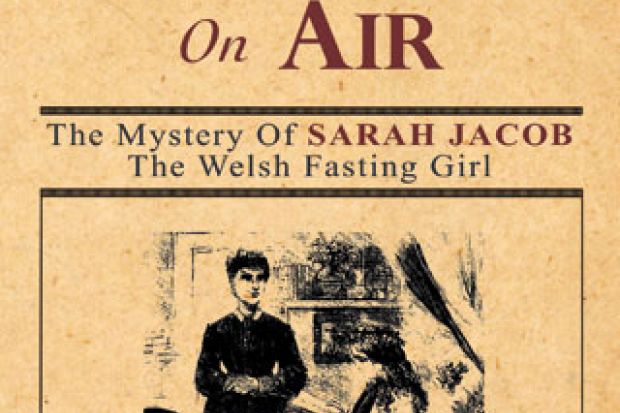In February 1867, a 10-year-old Welsh girl named Sarah Jacob became ill in the aftermath of a bout of scarlet fever. She had blood in her mouth, pains in her stomach and muscular spasms or “fits”. She found it hard to eat and by October it was reported that she had stopped eating altogether, refusing all food. But, mysteriously, she appeared rosy-cheeked and “fleshy” as she sat up in bed, reading books in Welsh and English, no longer able to join her siblings in working the family farm.
News of the girl who lived on air, defying the laws of nature, spread around Wales and even England. The new railway lines brought visitors to her bedside. Some left a coin for the family; others – doctors and ministers – attempted to watch over her to see if she was secretly eating or drinking, but their attempts at observation were hampered by her father’s hovering over the proceedings.
Finally, in December 1869, a watch was set up, with 10 local professional men and female nurses from Guy’s Hospital. Everything was examined for traces of food or liquid; Sarah’s bed was set apart; and visitors were limited to her parents who could only take her hand (there being some suspicion that a sister was secretly giving her food and drink under the guise of lavish affection). On the first day of the watch, 9 December, Sarah was reported to be cheerful, healthy, plump even, with a regular temperature and pulse. She rapidly began to decline. The doctors present urged her father to let them examine her and offer medical care. He refused, saying that he had taken a vow to Sarah two years before not to give her food. She died eight days later, on 17 December.
Many commentators regarded this as the end of an imposture. Did this not prove that she was not a miracle child, but had been smuggled food by her family who wanted to “create a complete show-child”? She had starved to death; but who was responsible? The Treasury brought a criminal prosecution against Sarah’s parents, Evan and Hannah Jacob, who were convicted of manslaughter and sentenced to 12 months and six months, respectively, of hard labour in Swansea Prison.
Stephen Wade tells a compelling narrative in his readable book on this case (although better copy-editing on the part of the publisher would have made the read a smoother one, and the addition of endnotes would have been a bonus). He situates the story within the context of mid-19th-century British culture, exploring the tensions between the Welsh and the English, the clash between religious and medical explanations, and the narrow line between pilgrimage and entertainment.
A strength of Wade’s analysis is that he forgoes a simple secularisation thesis and recognises that parallel interpretations co-existed: medical, religious and folkloric.
A glance across the Channel at the exactly contemporaneous development of the shrine at Lourdes would have given additional weight to his hypothesis that Sarah in her bed, surrounded by garlands of flowers and reading pious books, suggested “a deep need for a shrine, for a new nineteenth-century focus for pilgrimage”. And a look at earlier fasting girls – such as Martha Taylor in late 17th-century Derbyshire – would have shown that intellectual tussles about whether these young women were miraculous or medical wonders had been occurring for at least two centuries.
In the end, Sarah’s death, only eight days after she was reported healthy, meant that medical explanations were required. Wade investigates these thoroughly, both in terms of 1860s medicine and in relationship to our greater knowledge of psychological and physiological illnesses with regard to eating. His final interpretation of her own motives perceptively links her understanding of spiritual fasting to what, in just the next decade, would be identified as anorexia nervosa.
Wade begins his book with two recent incidents of parents who were prosecuted for neglecting their children to the extent that their children died. Ian McEwan’s latest novel, The Children Act, explores similar themes in the story of a 17-year-old boy who refuses medical treatment on religious grounds. The story of Sarah Jacob is clearly one that still has echoes today.
The Girl Who Lived on Air: The Mystery of Sarah Jacob, the Welsh Fasting Girl
By Stephen Wade
Seren, 180pp, £9.99
ISBN 9781781720684
Published 1 September 2014
Register to continue
Why register?
- Registration is free and only takes a moment
- Once registered, you can read 3 articles a month
- Sign up for our newsletter
Subscribe
Or subscribe for unlimited access to:
- Unlimited access to news, views, insights & reviews
- Digital editions
- Digital access to THE’s university and college rankings analysis
Already registered or a current subscriber?





